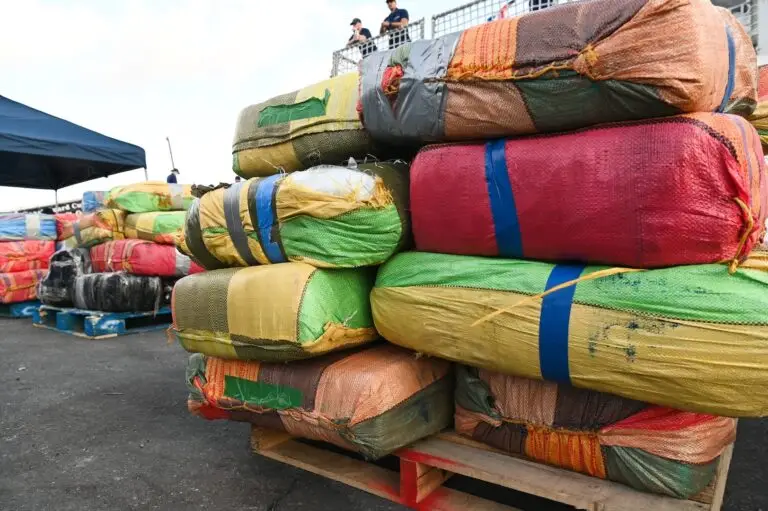FORT LAUDERDALE, Fla. — Wrapping up South Florida’s Fleet Week with a decisive show of force, the crew of the US Coast Guard Cutter Tampa unloaded roughly 3,750 pounds of cocaine and marijuana at Port Everglades on Wednesday. The illicit cargo, seized in two separate operations south of Puerto Rico, carries an estimated street value of US $12.3 million. US Coast Guard News
The narcotics were intercepted by the USS Minneapolis‑Saint Paul during the ship’s maiden deployment. Working with an embarked Navy helicopter detachment and Coast Guard law‑enforcement teams, the littoral combat ship pursued and disabled two smuggling vessels after coordinated air‑and‑sea tracking alerted authorities to suspicious movements in the region. LiveNOW
Commander Steven Fresse, commanding officer of the Minneapolis‑Saint Paul, said the swift interdictions illustrate “how months of rigorous preparation translate into real‑world impact the moment we leave the pier.” He credited the combined Navy‑Coast Guard team for turning intelligence cues into arrests “within hours.” US Coast Guard News
After towing the contraband to Florida, the Tampa’s crew used cranes to move bales of drugs onto the dock, where federal agents catalogued the evidence and K‑9 units swept the pallets. Commander Walter Krolman, who leads the Tampa, called the offload a public reminder that “joint sea‑service operations far from shore directly safeguard Americans at home.” WPEC
Drug‑interdiction missions in the Caribbean hinge on constant collaboration. The Joint Interagency Task Force South in Key West handles long‑range detection and monitoring; once a pursuit is imminent, tactical control shifts to the Coast Guard’s Seventh District, headquartered in Miami, to execute boarding, search and seizure.
With Wednesday’s offload complete, the narcotics will be transferred to the Department of Justice for destruction and prosecution of the suspected traffickers. Authorities say the case underscores why multi‑agency patrols remain a cornerstone of U.S. maritime strategy: persistent presence at sea denies smugglers the freedom of movement they rely on to reach U.S. shores.






